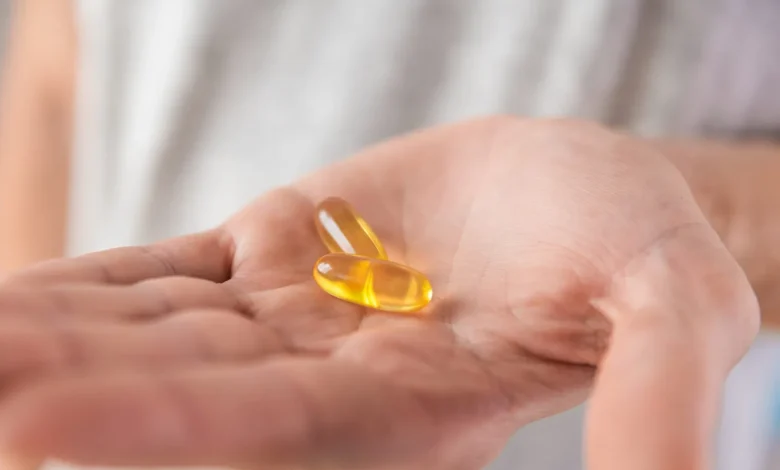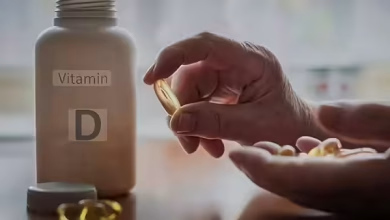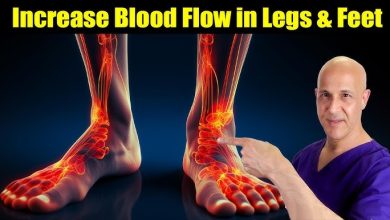Vitamin D may improve your energy levels. Here’s how much you need each day

You may have heard that vitamin D is important for healthy bones and that if you’re not receiving enough of it from sunlight or from foods high in D, such as eggs, fatty fish, or fortified milks, you may need to take supplements.
Perhaps you’ve even heard that vitamin D has been linked to reduced heart attack risk and enhanced cognitive performance.
The fact that vitamin D may also boost your energy levels may come as welcome news.
That is understandable given that the Cleveland Clinic lists fatigue, weakness in the muscles, and depression as some of the most common signs of vitamin D insufficiency in adults, all of which can contribute to feelings of exhaustion and depression.
What is vitamin D?
According to the National Institutes of Health Office of Dietary Supplements, vitamin D, also known as calciferol, is a fat-soluble vitamin that can be found in foods naturally or through fortification, as well as in supplements. Additionally, when ultraviolet (UV) rays from sunshine strike the skin, they cause the body’s cells to generate vitamin D.
Whatever the source, vitamin D needs to be activated within the body. It does this by passing via the liver, which turns it into calcidiol, and then the kidney, which generates calcitriol.
Once it is active, vitamin D helps the body absorb calcium, reduces the risk of muscle cramps and spasms, and encourages the growth of strong bones.
Additionally, vitamin D helps to lower immunological response, inflammation, and glucose metabolism.
What does science say about vitamin D and energy?
There is some evidence to support the theory that vitamin D could help you walk with more energy.
Two groups with fatigue and vitamin D deficiency were compared in a study that was published in the journal Medicine; one group received vitamin D supplements, while the other received a placebo. The group that received vitamin D saw notable increases in energy levels in just four weeks.
In a similar vein, a tiny UK study discovered that vitamin D is essential for increasing energy and facilitating the effective operation of our muscles. It demonstrated that taking vitamin D supplements enhances muscle performance and raised the possibility that weariness results from “reduced efficiency of the mitochondria: the ‘power stations’ within each cell of the body.”
Vitamin D has been linked to better physical performance in soccer players, according to one study, and it has also been shown to increase energy levels in patients who just had kidney transplants. Researchers have also connected vitamin D deficiency to premenopausal women’s weakness and weariness as well as to the persistent fatigue associated with fibromyalgia.
Do I need a vitamin D supplement?
Experts advise consulting your doctor to rule out other illnesses and get tested for vitamin deficiencies before rushing to start taking D supplements.
“My first recommendation would be to recommend a series of tests before considering supplements if someone is dealing with low energy,” Dr. Elizabeth Sharp, medical director and internist at Health Meets Wellness in New York City, previously told Fortune. It’s critical to test for vitamin deficiencies, particularly those related to vitamin B12 and vitamin D, especially in vegetarians. Furthermore, if other symptoms point to a thyroid disease, I would rule that out along with anemia and iron deficiency. Accurately determining the root problem is crucial to ensuring suitable and efficient therapy.
Experts advise against using supplements if you are not weak in any particular nutrient. However, as stated in a Harvard newsletter, “the only significant sources of vitamin D are fortified dairy products and oily fish; it’s very hard to get the vitamin D you need from your diet.” 92% of men and over 97% of women, according to an analysis of National Health and Nutrition Examination Survey (NHANES) data from 2013 to 2016, absorbed inadequate quantities of vitamin D daily via food and beverages. Thus, for the majority of people, supplements probably make sense.
When buying vitamin D pills, proceed with caution when it has been verified that they are appropriate.
Jolene Brighten, a naturopathic endocrinologist and the author of Is This Normal?, recently advised Fortune, “Be wary of supplements that are far cheaper than the rest or look like a good deal.” “They don’t always contain what the label says because they aren’t regulated, and they frequently use low-quality ingredients.”
The Office of Dietary Supplements at the National Institutes of Health and subscription-based resources like Consumer Lab, which investigates anything from potential toxins to verifying that a supplement includes what it says, are good places for consumers to start.
How much vitamin D do you need?
The NIH recommends a daily dose of 600 IU for adults up to age 70 and 800 IU for adults over 70. “It is also important to be getting enough sunlight,” Brighten continues. She also emphasizes how crucial it is to test your D levels in order to figure out what you need.
Experts advise against consuming too many supplements. Rarely, taking too much vitamin D can be harmful. An 89-year-old man from the UK passed away in March, partially due to vitamin D toxicity (albeit he did have several underlying illnesses).
Additionally, as the Office of Dietary Supplements points out, vitamin D can have negative interactions with some drugs, such as steroids and statins, so make sure to talk to your doctor about it.




